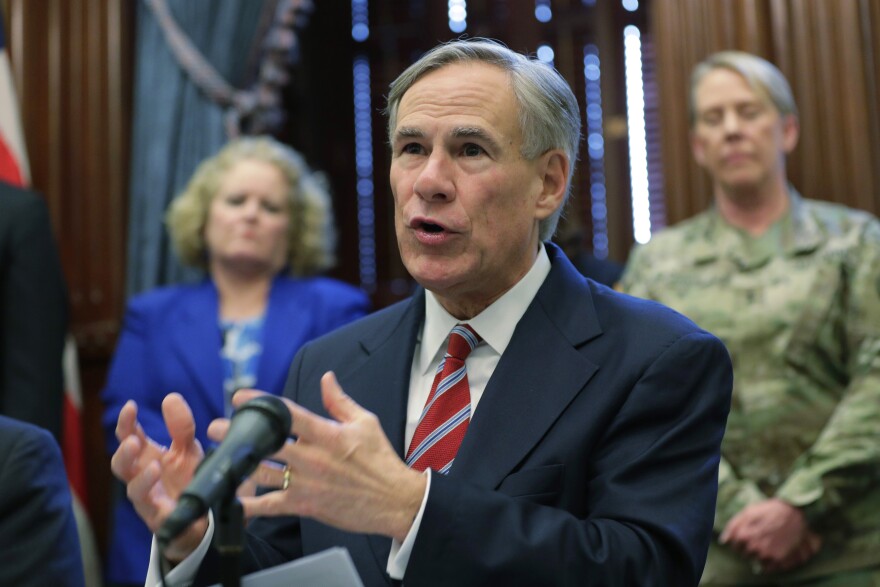Governor Greg Abbott announced Wednesday afternoon that hospitals across the state are preparing for a rise in cases and that there will be an increase in statewide testing capacity for COVID-19.
“Our testing capabilities have increased dramatically,” Abbott said during a press conference in Arlington, where the first death due to the coronavirus in Tarrant County occurred.
He said the state will be able to administer 15,0000 to 20,000 tests per week by the end of the week. Abbott also said he has been in talks with the CEOs of leading hospitals across the state.
Hospital Preparedness And Secondary Treatment Locations
“I was impressed with the number of beds that already exist, and the secondary strategies,” he said. Abbott said secondary strategies include medical tents that can be set up in a day.
Additionally, he said the state could use recently closed hospitals, quick clinics, standalone ERs and other pop-up facilities if needed, which “are equipped to handle this."
He also said standalone motels or hotels could be used for individuals who test positive, but are not in critical condition.
Treating At-Risk Populations
In reference to the death of 77-year-old Patrick James, an Arlington man who tested positive for COVID-19 posthumously and became Tarrant County's first death from the virus, DSHS Commissioner John Hellerstedt said the state is making an effort to focus on vulnerable populations.
“We hope to additionally expand that [testing] more broadly to populations who are at risk, such as people who are elderly or have serious underlying medical conditions,” he said.
Hellerstadt said the state continues to focus on treating those who are exhibiting symptoms. He said risk factors must also be taken into account.
“That risk factor could be travel, that risk factor could be exposure to a known case, that risk factor — we’ve expanded it and the CDC has expanded it to seriously ill persons in the hospital who don’t have a known cause for the illness,” he said.
James was Tarrant County’s first recorded COVID-19 death and had no known travel history or contact with other COVID-19 cases, according to Arlington Mayor Jeff Williams.
He lived in a cottage at the Texas Masonic Retirement Home with his wife. They participated in activities at the cafeteria of the main facility.
James was hospitalized on Thursday, March 12 and died early March 16. The positive tests results were obtained on Tuesday, March 17.
Immigrants Encouraged To Seek Medical Treatment
During the press conference, Abbott also encouraged Texas immigrants to reach out for medical treatment if they are experiencing symptoms. He said those who go to the doctor will only be asked medical questions.
“We want everyone who needs to be tested to get tested,” he said. “You should have no fear about that whatsoever.”
Help For People Who Are Uninsured
He also said for those who don’t have healthcare insurance, the cost should not be a reason to forgo treatment. Abbott said uninsured Texans can contact their local healthcare authorities to learn where and how to receive testing or treatment.
Abbott said there are currently 83 confirmed cases across 23 counties, three deaths and more than 1900 people who are being monitored for possibly being infected with COVID-19.
“As we see the spread of this across the state of Texas, it is absolutely essential every leader must employ the standards that have been established by the CDC to mitigate the spread of the coronavirus."






